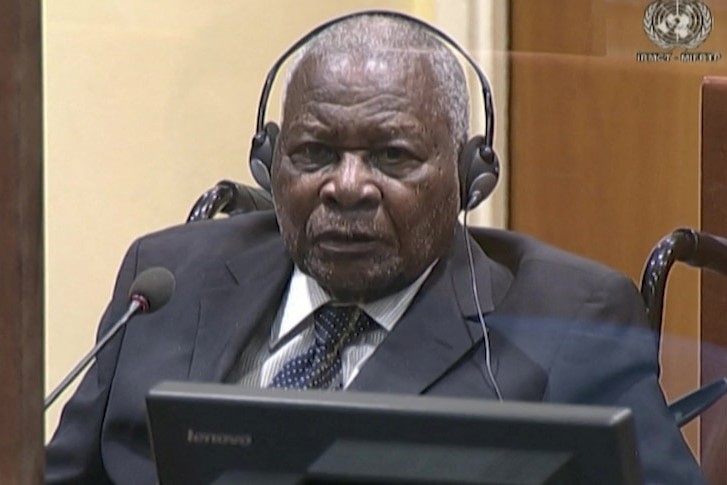UN war crimes judges ruled that ageing Rwandan genocide suspect Felicien Kabuga is unfit to stand trial but should still go through a stripped-down legal process, in a decision announced Wednesday.
Kabuga, who is 88 according to officials but claims to be 90, is a former tycoon accused of setting up a hate broadcaster that fuelled the 1994 slaughter of around 800,000 people.
Kabuga went on trial in The Hague in September last year, but judges said medical experts had now found that he had “severe dementia” and could not take part properly in court.
The International Residual Mechanism for Criminal Tribunals said in an order that it therefore “finds that Mr. Kabuga is not fit for trial and is very unlikely to regain fitness in the future.”
Judges said they wanted to “adopt an alternative finding procedure that resembles a trial as closely as possible, but without the possibility of a conviction.”
It was important to victims, survivors and the international community that the genocide crimes against Kabuga still be addressed in court, the justices added.
One judge dissented.
Prosecutors accuse Kabuga, once one of Rwanda’s richest men, of establishing hate media that urged ethnic Hutus to kill rival Tutsis and of supplying death squads with machetes.
The businessman refused to appear in court or appear remotely at the start of his trial and has subsequently followed proceedings via video-link from a wheelchair at the court’s detention centre.
The court first put the trial on hold in March over health concerns, having earlier dismissed bids by Kabuga’s defence lawyers to have him declared unfit to stand trial.
In their order on Tuesday, judges said three court-appointed medical experts had found that Kabuga’s mental abilities had “significantly deteriorated” since before the trial.
The Rwandan was therefore unable to follow what was going on in court, understand evidence, instruct his lawyers or testify, it said.
But the court said scrapping the trial altogether was “inappropriate”.
They stressed the “importance of addressing the crimes against humanity and genocide charges against him to the victims and survivors of those crimes, and to the international community as a whole.”
The idea of an alternative legal process had already been tried in some Commonwealth countries and would respect Kabuga’s legal rights.
Kabuga would not be required to attend the new legal process, the court added.
Kabuga was arrested in Paris in 2020 after decades on the run and sent for trial in The Hague.
He has pleaded not guilty to charges of being involved in an infamous Hutu radical radio station urging people to kill Tutsi “cockroaches” during the 1994 bloodletting.
He also denied supplying machetes and otherwise supporting the murderous Interahamwe Hutu militia.
Kabuga is one of the last Rwandan genocide suspects to face justice, with 62 convicted by the tribunal so far.
Another suspect, Fulgence Kayishema, appeared before a court in the South African city of Cape Town in May after being arrested following 22 years on the run.
Africanews









